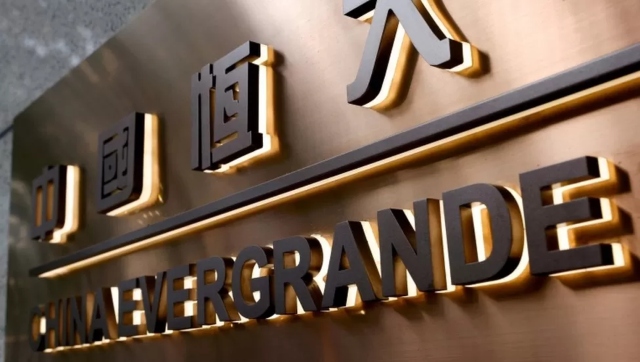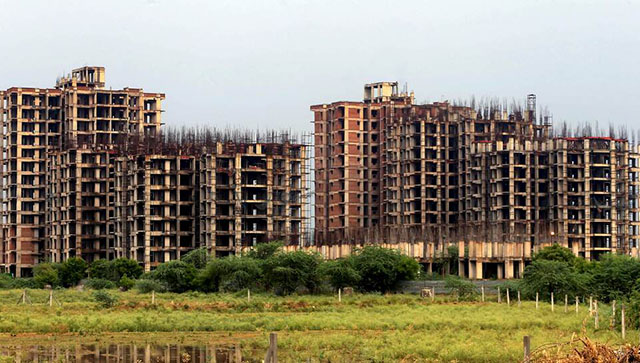Read more columns in this series here .
***
Workers and Work-outs
Now there are barbells in the old boiler room, but both are about building up a sweat, no? No.
Skyscrapers soar where sirens roared and they house a hundred millionaires where there were only two — the families who owned the two mills of TJ Road. Swan and Standard, more commonly known as ‘China Mill’.
The process of Mumbai’s metromorphosis is clearly evident here because TJ Road is an outlier of the old mill hub of Parel. Because it is off the main roads, the developer’s eye fell on it later. So, the derelict ruins of Bombay’s earlier golden age haven’t been fully buried under the gilded Gotham of the city’s new persona.
To compare what was to what is, I chatted with Algoo Yadav, originally from Azamgarh, and Rajendar Shrirang Deshmukh, not just Marathi manoos, but local Sewri lad to boot. Yadav had worked in the cone-winding section of China Mill from 1993 till it finally wound up in 2000. Deshmukh’s mama was an old hand at Swan, and young Rajendar would be in and out, ‘uthak-baithak’ as he put it, of his uncle’s kholi across the road. Both are now security guards, each at his old but now-unrecognisable stomping ground. Yadav came to our Dosti Flamingos as part of the general mandate to employ the abandoned workers or their offspring in the new gated communities. Deshmukh strode into Ashok Gardens on ‘apun ka merit’.
Yadav recalls two supervisors, one a grumpy ‘khadoos’ and another in the weaving ‘depaat’ who was always doing ‘faltu ghumla-gaali’, abusively finding fault. Nothing changes. Their counterparts still wreck our housing society meetings. The Dosti Hi-Fly Club sprawls over what was the gargantuan boiler room working up a steam to run the huge mill. Puh-lease, let not our pokey sauna pretend to be its legatee. The chimney still stands sentinel near the gate, ours being one of the very few complexes to have retained this totem of the past. Yadav can still ‘hear’ the siren, mill-minaret calling the faithful to secular worship — not five times but the three shifts of the 24x7 cycle.
Both recall an expansive, un-encroached TJ Road. But Deshmukh wallows in the metamorphosis, “The towers look beautiful. Yes, there must be more development; it doesn’t matter if the jhopdas have to go. Today there’s traffic even at 2 and 3 am. In the old days, it was unsafe after dark; dadas ruled every alley. If you arrived at Dadar Station after 6 pm, you’d have to leg it here with your luggage; no taxiwalla would agree to take you to Sewri.”
The walled open ground across our main gate was the China Mill tank, filled up after several desperate, jobless millworkers jumped into it, including Deshmukh’s cousin. The Swan Mill ‘khari’ is a well-maintained garden, where, till COVID struck, Angel Express conducted free coaching classes for local municipal-school kids.
Both my new friends mention the different ‘mahaul’ at festival time. Yadav lights up at the memory of Dussehra when China Mill was a decorated ‘open house’: “Friends and relatives could come and see our workplace. We got half-kg mithai dabbas.” The originals and the arrivistes are bound in the rhythmic circle of garba, ours and theirs, alike and different.
For Deshmukh, Holi was the biggie of the road outside. A mela would spring up on what today is a mundane tempo parking lot opposite a scruffy industrial estate which separates the two manicured housing complexes. “Whole families from miles around would be drawn to the variety of food, the toy stalls, shoot-the-balloon games, magic shows, acrobats.” Of course there’d be the dizzying merry-go-round and the screaming hurdy-gurdy, primitive predecessors of the rides that TJ Road’s newer residents fly off to, or did. Holi too is wet and wild within the gilded gates. Till more sensitive opinion prevailed, we’d even get in tankers for a ‘rain dance’.
Since coming to live here, one fact has been drummed into me: Like the old mills, festivals are a continuous process industry in India, and the tenements would assert their blaring presence almost 365 nights of the year. COVID-19, the leveler, has tamed festivities too. But in old-normal times, complaints about the unrelenting surround sound would be shrugged off with a cold, “You have your swimming pools, let us have our loudspeakers.” Them and Us, Us and Them. Since gentrification will never be absolute, both must sign the urban pact of shared spaces.
)
)
)
)
)